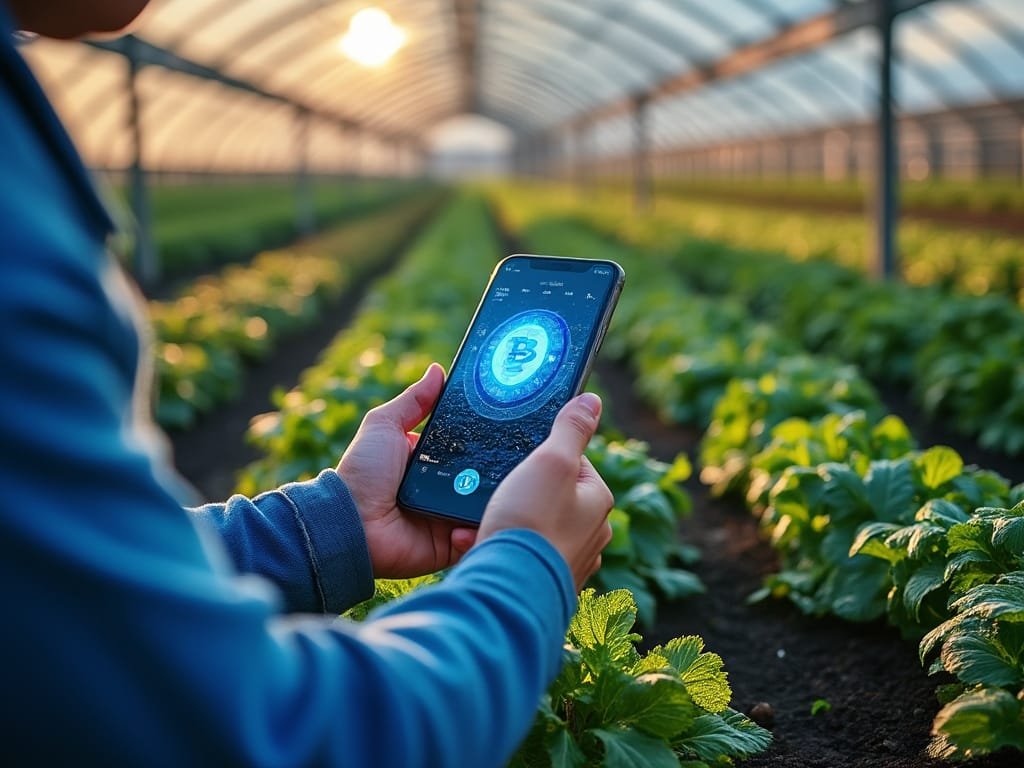In an era where transparency and trust are paramount, the agricultural sector in the United States is turning to blockchain technology to address longstanding challenges. From farm to table, blockchain is revolutionizing the way agricultural data is managed, ensuring that every stakeholder—from farmers and distributors to consumers—can access reliable and immutable information. This transformative technology is not only enhancing transparency but also building trust within the agricultural supply chain. Let’s explore how blockchain is making a significant impact on U.S. agriculture.
Enhancing Supply Chain Transparency
One of the most significant benefits of blockchain in agriculture is its ability to provide end-to-end visibility across the supply chain. Traditional supply chains often suffer from information silos, where data is fragmented and difficult to verify. Blockchain addresses this by creating a decentralized and immutable ledger where every transaction and movement of goods is recorded in real-time.
- Traceability: Blockchain allows for precise tracking of agricultural products from the farm to the consumer. This traceability helps in quickly identifying the source of any issues, such as contamination or spoilage, ensuring swift and effective responses.
- Accountability: With every participant in the supply chain having access to the same data, accountability is heightened. Farmers, distributors, and retailers can verify the authenticity and quality of products, reducing the risk of fraud and ensuring compliance with industry standards.
Building Consumer Trust
In today’s market, consumers are increasingly concerned about the origin and quality of their food. Blockchain technology provides the transparency needed to meet these expectations, fostering greater trust between consumers and producers.
- Verified Information: Consumers can access detailed information about the agricultural products they purchase, including farming practices, processing methods, and transportation details. This verified information empowers consumers to make informed choices.
- Certification and Compliance: Blockchain can store and verify certifications related to organic farming, fair trade, and other quality standards. This ensures that products labeled with such certifications genuinely meet the required criteria, enhancing consumer confidence.
Streamlining Transactions and Reducing Costs
Blockchain simplifies and secures transactions within the agricultural sector, reducing the need for intermediaries and lowering transaction costs.
- Smart Contracts: These self-executing contracts automate and enforce agreements between parties. For example, a smart contract can automatically release payments once specific conditions, such as delivery confirmation, are met. This reduces delays and minimizes the risk of disputes.
- Reduced Paperwork: By digitizing transactions and records, blockchain eliminates the need for extensive paperwork, reducing administrative costs and improving efficiency.
Improving Data Management and Security
Effective data management is crucial for optimizing agricultural operations. Blockchain offers a secure and reliable way to manage and share data among stakeholders.
- Data Integrity: Blockchain’s immutable ledger ensures that once data is recorded, it cannot be altered or deleted. This guarantees the accuracy and integrity of agricultural data, which is essential for making informed decisions.
- Secure Sharing: Farmers can securely share sensitive data, such as crop yields, soil health, and weather conditions, with agronomists, researchers, and other stakeholders. This collaborative approach fosters innovation and improves overall agricultural practices.
Facilitating Access to Financing and Insurance
Blockchain technology is also transforming access to financial services in agriculture, particularly for small and medium-sized farmers.
- Transparent Credit Histories: Blockchain can create transparent and verifiable credit histories for farmers, making it easier for them to obtain loans and other financial services. This is especially beneficial for farmers who lack traditional credit records.
- Smart Insurance Contracts: Insurance policies can be managed through smart contracts that automatically process claims based on predefined conditions, such as adverse weather events. This ensures timely payouts and reduces the administrative burden on both insurers and farmers.
Promoting Sustainable and Ethical Farming Practices
Sustainability and ethical practices are becoming increasingly important in agriculture. Blockchain supports these initiatives by providing transparent and verifiable records of farming practices.
- Sustainable Certifications: Blockchain can track and verify sustainable farming practices, such as reduced pesticide use or water conservation efforts. This helps consumers identify and support environmentally responsible products.
- Ethical Sourcing: By ensuring that agricultural products are sourced ethically, blockchain helps promote fair labor practices and humane treatment of livestock, aligning with consumer values and regulatory requirements.
Conclusion: Blockchain for agricultural change
Blockchain technology is a game-changer for U.S. agriculture, addressing critical issues related to transparency, trust, and efficiency. By providing an immutable and decentralized ledger, blockchain enhances supply chain visibility, builds consumer trust, streamlines transactions, and promotes sustainable farming practices. As the agricultural sector continues to embrace this innovative technology, the benefits will ripple across the entire supply chain, leading to a more resilient, transparent, and trustworthy agricultural ecosystem.
